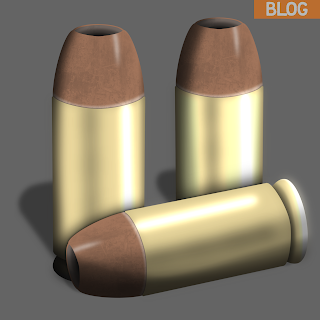Took My Breath Away
I wish that I could say that this post has nothing to do with the ever so present Coronavirus but unfortunately it does. More specifically, I want to write about my experiences on a ventilator. If we thought about each ventilator as a human life and not some low balled statistic we hear almost daily on the news then maybe more people would take this pandemic seriously. If there is one thing that I can attest to, it is that being on a vent is an absolute nightmare.
I feel like when people hear about strangers getting the coronavirus and being placed on a ventilator or respirator to survive, they don’t really understand what that whole situation looks like. It’s a pretty morbid thought process but most people assume things like this are a survival of the fittest scenario. You hear all about the nursing homes being ravished, but I think people need to understand the true horror of what can happen with a respiratory complication.
I feel like when people hear about strangers getting the coronavirus and being placed on a ventilator or respirator to survive, they don’t really understand what that whole situation looks like. It’s a pretty morbid thought process but most people assume things like this are a survival of the fittest scenario. You hear all about the nursing homes being ravished, but I think people need to understand the true horror of what can happen with a respiratory complication.
I was 23 years old. I could run half marathons and swim for miles at a time. I was in incredible shape. In an instant, all that changed. If you want to imagine true panic, imagine waking up unable to speak while a machine inflates your lungs. The first thing that I tried to do was rip the tube out of my esophagus. Time to restrain my arms until I was mentally able to grasp what had happened to me. At this point it was easier to keep me sedated. Each time that I woke up, the same panic set in. Until it didn’t. I had no way to communicate but I could hear my loved ones and doctors explain everything to me. For two weeks, doctors would maintain my intubation tube and work on keeping it clean and sterile. Every once in a while I would get a mucus plug and would have no oxygen coming in. I received all fluids from IV ports and “ate” from a nasal tube. Randomly, food would kick on and run up my nose and into my throat. I was constantly monitored. Eventually the doctors recommended moving into a long term tracheotomy. The tube was replaced with a surgical hole in my esophagus and the ventilator was reconnected to that. I worked on taking a breathe at the same pace of the machine so I could re train my diaphragm and lungs, but to no avail. Each time the doctors and respiratory therapists would trial me off of the vent, my blood oxygen levels would crash. I felt weak and pathetic... sad and frustrated. Each attempt at a full breath felt like I was drowning.
I had a team of respiratory therapists come in multiple times each day and do what they could to help me. Vapor treatments to remove mucus and other gunk. A special bed that would shake my whole body to help break up what was filling my lungs. Eventually, I developed pneumonia. On my second battle with pneumonia it was decided that a specialty doctor would help clean out my lungs. I’m not sure what the procedure is called but it was intense and extremely uncomfortable. The doctors tried to sedate me but my body was so used to heavy drugs at that point that I woke up mid bedside surgery and watched the camera screen the doctor was using. He moved a wire into different parts of my lung and it would vacuum up any blockages. That is still to this day one of the coolest things that I’ve ever witnessed. Next came the hardest and scariest part of my whole recovery. Breathing.
I was now at the Army hospital and my respiratory therapist was not messing around. It was decided that I would try coming off of the ventilator again. Only this time, she took the ventilator and wheeled it out of the room. I was pissed! What if I crashed again? Having the vent on hand was my safety net. Now obviously, the vent was right outside the door ready to get hooked back up if needed, but I didn’t need to know that. What I needed was this kick in the ass. At first I took deep breaths. I could feel my weak lungs sucking in oxygen. It felt great. I was doing it, finally. But then I started rapid breathing. Shallow and scared breaths. Looking back now, I recognize it as a panic attack. I truthfully thought that I was drowning. Taking in less and less oxygen with each breath. That I was slowly dying and that the respiratory doctor didn’t care... In reality, my blood oxygen levels were fine. But once again, I didn’t know that. This is where I owe my dad a lot of praise. I refused to have anyone in the room during this time, except for my dad. I knew that he would help me and obviously make sure that I was safe. During my panic, I was very visibly mad at him for letting this happen. I wanted him to go out there grab the doctors and have them hook it back up. I can’t imagine having to watch me go through this. He talked me through it and after a few hours, I knew that I could do it. I knew that I would make it the whole day breathing by myself. Then came the night. I refused to fall asleep. I absolutely would not let my body get to that point. I was convinced that as soon as I fell asleep my body would stop breathing and that I would die in my sleep. I was convinced that I was going to die and this was going to be what killed me. Panic all over again. Again, my dad gave me some tough love and stayed awake with me through the whole night. I went from phases of calm, deep and deliberate breaths to minutes of rapid, shallow and panicked breaths. Until I didn’t.
The next morning, my mom and girlfriend showed up. I’m sure that my dad had been keeping them in the loop, but I was so proud to show them that I was still breathing on my own. That this time I didn’t need the machine to get hooked back up. I was still going strong. My mental tally of “hours spent off of the vent” could now become a tally of days, months and now years.
I still had the tracheotomy tube in for a month. But eventually that was removed and my stoma healed and closed, leaving behind a nice scar. A scar of memories and of trauma. A scar to remind me daily that I’ll NEVER go back to a point where I can’t breath freely on my own. To this day, I can’t take a full, lung expanding breath like you may do after a long run... but I can breathe. I have an extremely weak cough and an almost embarrassing sneeze. I had to relearn safe ways to eat and went through vocal rehab to talk again. I am one of the lucky ones. My spinal cord injury was one vertebrae away from me being left on the vent for the rest of my life.
The next time you hear a new statistic about ventilators, or about the coronavirus, I ask that you think about this. Think about my story. The next time that you hear a statistic about someone who died while on the ventilator, think about the trauma that they went through. When you hear stories about people coming off of the ventilator after this illness, think about the amount of pride that they must feel after having gone through this. For most of you with this illness, if you get it, will not be a big deal. But think about who you might give it to you. I was 23 and healthy and I can tell you, nobody wants to be on a ventilator. That trauma was worse then anything regarding my injury. Stay healthy and stay safe!
God Bless!






Josh Keller,
ReplyDeleteThank you for sharing your experience in life and bringing a different prospective for many of us who don’t understand the seriousness or the pain of having to be on a ventilator. Your definitely one of the most inspiring people I have had the privilege of serving with. Keep the Blogging going thanks for motivating all those who need it.